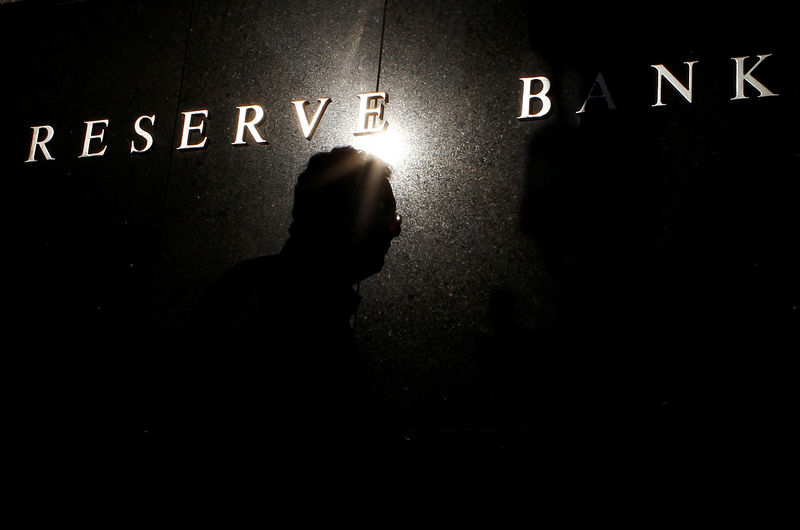By Wayne Cole
SYDNEY (Reuters) - Australia's central bank held interest rates steady on Tuesday, a month after cutting to a record low of 1.5 percent, and left open the question of further easing as the country gets ready to toast 25 years without a recession.
The decision by the Reserve Bank of Australia (RBA) came as no surprise given easings in August and May are yet to percolate through the economy.
"The Board judged that holding the stance of policy unchanged at this meeting would be consistent with sustainable growth in the economy and achieving the inflation target over time," said RBA Governor Glenn Stevens, who retires this month after a decade in the top job.
Stevens will be replaced by his current deputy, Philip Lowe, who in turn is being replaced by another career RBA banker, Guy Debelle. Both are well respected in financial markets.
All 33 economists polled by Reuters expected a steady outcome and financial markets had priced in a vanishingly small chance of a cut. <0#YIB:>.
Most respondents looked for rates to stay on hold to the end of the year, though many favoured one final easing to 1.25 percent in the first quarter of 2017. [AU/INT]
The recent cuts were driven largely by a surprisingly sharp slowdown in inflation and the need to prevent the local dollar from climbing too far in reaction to hyper-aggressive policy easing elsewhere in the world.
GROWTH FORECASTS EDGE HIGHER
The steady decision comes a day before government data is expected to show Australia notched up a 25 years of economic expansion in the June quarter.
Indeed, analysts were nudging up their growth forecasts after data showed the conservative government of Malcolm Turnbull went on a mini spending-spree last quarter, in the run-up to a federal election in July.
Forecasts were now clustered around 0.5 percent to 0.6 percent for gross domestic product (GDP) growth in the second quarter. That would be a step down from the first quarter's unusually strong 1.1 percent increase, largely due to a pullback in net export earnings.
Yet annual growth was still seen accelerating to around 3.5 percent, the fastest pace in four years and well ahead of most of Australia's peers in the rich world.
"The Australia economic expansion is about to celebrate its 25th birthday and is zeroing in on the Netherlands' gold medal for the longest expansion in the modern era," said Craig James, chief economist at fund manager CommSec.

"Household and government spending, public investment and inventories drove growth in the quarter, restrained by private investment and net exports."